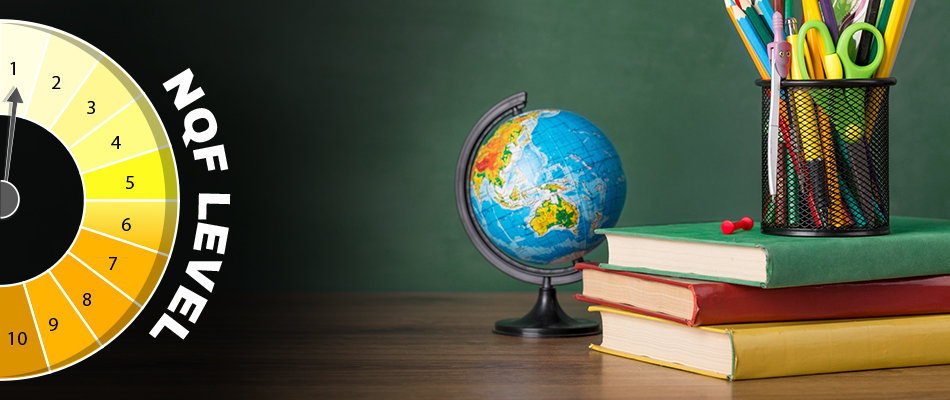In South Africa, the National Qualifications Framework (NQF) is an important system for educational qualifications. It makes sure that qualifications are standardised and recognised, giving learners a clear path to follow. The NQF divides qualifications into ten levels, each showing a different level of learning and understanding.
Knowing these NQF levels, especially for diplomas like the National Diploma and the National N Diploma, is crucial for students and professionals who want to advance their education and careers. It helps them understand the value and recognition of their qualifications and plan their further education and career moves, allowing them to make informed decisions about their educational goals.
Table of Contents
- What Is a National Diploma?
- National Diploma NQF Level In South Africa
- What Is the National N Diploma?
- National N Diploma NQF Level
- National Diploma vs National N Diploma: NQF Levels
- Similarities between National Diploma and National N Diploma
- Practical Implications Of Diploma NQF Levels
- Conclusion
- FAQs – Understanding National Diploma and National N Diploma NQF Level
In this article, we’ll understand the National Diploma and National N Diploma NQF levels, their meanings and what these qualifications mean for students in South Africa.
What Is a National Diploma?
National Diplomas are designed for individuals who want to advance their skills in a specific field and become more competitive in the job market. For example, a National Diploma in Public Administration provides the knowledge and practical experience needed for public sector jobs. These diplomas offer a more focused and practical education compared to general degree programmes, ensuring students gain the expertise needed for their careers.
A National Diploma consists of a combination of classroom instruction, practical training, and hands-on work experience. This method guarantees that graduates possess both knowledge and the ability to apply it in practical scenarios. National Diplomas serve as a valuable connection between secondary education and the workforce by equipping students for both immediate employment and career advancement. Let’s understand more about what NQF level is a national diploma in South Africa.
National Diploma NQF Level In South Africa
In South Africa, educational qualifications are classified under the National Qualifications Framework (NQF). This system standardises and integrates the recognition of learning achievements. To answer the question of which NQF level is a National Diploma, it is essential to know that National Diplomas are higher education qualifications accredited by the Quality Council for Trades and Occupations (QCTO) and typically range from NQF Level 5 to NQF Level 7. These diplomas are offered by universities of technology, technical colleges, and private institutions, aiming to improve specific skills and improve employability.
Employers favour and regard the National Diploma NQF Level 6 as it represents an advanced level of vocational education and training, preparing students with essential skills and knowledge for success in their desired careers. The programme consists of theoretical classes and practical components, like internships or projects, to provide graduates with practical skills. At present, there are 124 qualifications available on the South African Qualifications Authority’s site, each tailored for various career paths in fields like engineering, business, IT, and healthcare.
What Is the National N Diploma?
A National N Diploma is intended for students who have a strong interest and expertise in a particular vocational or technical area. The South African Qualifications Authority states that this diploma equips students with the necessary skills to either pursue further studies or enter the workforce in their field of choice. Unlike typical educational programmes, this one concentrates solely on providing specialised training and does not require the study of general academic subjects.
The main aim of a National N Diploma is to provide in-depth technical, theoretical, practical, and workplace knowledge in a specific occupation. Students complete courses at N4, N5, and N6 levels in their field. After finishing these courses, they must also complete 18 months of relevant work experience to receive the diploma.
It’s important to note that a National N Diploma is different from a National Diploma. To enrol, students need a matric certificate or a NATED level 3 qualification. These diplomas focus on specific trades such as engineering or financial management. While they do require work experience, they are not the same as traditional internships.
National N Diploma NQF Level
National N Diplomas are given to students who complete three levels of the National Accredited Technical Education Diploma (Nated): N4, N5, and N6. These diplomas are at NQF Level 6, the same level as other National Diplomas.
To get the National N Diploma, students must first finish 18 months of classroom study at a Technical Vocational Education and Training (TVET) college. After that, they need 18 months of relevant work experience, such as interning. This combination of study and work ensures that graduates have both solid theoretical knowledge and practical skills.
The diploma is awarded only when both the academic and work experience requirements are met. This ensures that graduates are well-prepared and highly sought after by employers.

National Diploma vs National N Diploma: NQF Levels
When considering vocational qualifications in South Africa, it’s essential to understand the differences between the National Diploma and the National N Diploma
National Diploma:
- Typically at NQF Level 6.
- Focuses on practical skills and workplace readiness.
- Generally completed over three years with a mix of theoretical and practical learning.
National N Diploma:
- Also at NQF Level 6.
- Usually follows the completion of N4, N5, and N6 certificates (each at NQF Level 5).
- Requires relevant work experience to qualify for the diploma, emphasizing vocational training in specific fields like engineering or business.
Both diplomas are valuable for career progression, but their paths differ in structure and focus.
Similarities between National Diploma and National N Diploma
Here are five similarities between the National Diploma and the National N Diploma:
- NQF Level: Both qualifications are recognized at NQF Level 6, indicating a similar level of complexity and depth of study.
- Vocational Focus: Both diplomas emphasize practical, career-oriented training designed to prepare students for specific industries.
- Industry Readiness: Graduates from both programs are equipped with the skills needed to enter the workforce directly upon completion.
- Duration: Both typically require a three-year period of study, although the structure of this period may vary.
- Recognition: Both qualifications are well-recognized by employers and are respected in their respective fields.
Practical Implications Of Diploma NQF Levels
The National Diploma NQF levels have practical impacts on students, educators, and employers. For students, the NQF levels help them understand the complexity of their qualifications and what to expect in terms of coursework and practical work. Educators use these levels to design and provide appropriate curriculum, ensuring the content meets the required standards.
Employers benefit from the NQF levels as they provide a clear measure of a candidate’s skills and knowledge. This simplifies the hiring process, allowing employers to identify candidates with the necessary qualifications for specific jobs. Additionally, NQF levels support lifelong learning and career advancement, helping individuals plan their education and career paths.
For example, someone with an NQF Level 6 National Diploma might choose to pursue further studies, such as a bachelor’s degree (NQF Level 7) or an advanced diploma (NQF Level 7).
Conclusion
In conclusion, South Africa’s National Qualifications Framework (NQF) provides a clear system for understanding and recognising educational qualifications. The National Diploma and National N Diploma are two important qualifications within this system, each serving different purposes. National Diploma NQF Levels range from 5 to 7, focusing on boosting job skills and employability with a mix of classroom learning and hands-on experience.
In contrast, National N Diplomas, at NQF Level 6, focus on specific technical skills and require both study and practical work experience. Knowing these NQF levels helps students make better choices about their education and careers. For educators and employers, the framework ensures that qualifications are up to standard, improving the quality and relevance of education and training in South Africa.
FAQs – Understanding National Diploma and National N Diploma NQF Level
Q1. What is the National Diploma NQF level in South Africa?
The National Diploma NQF level in South Africa typically ranges from NQF Level 5 to NQF Level 7. These diplomas are designed to enhance specific skills and improve employability, with NQF Level 6 being particularly well-regarded.
Q2. What does the NQF level of a National Diploma indicate in the NQF framework?
A National Diploma is generally at NQF Levels 5, 6, or 7. This classification indicates the level of vocational education and training provided by the diploma.
Q3. How are the National Diploma and National N Diploma different?
A National Diploma covers broader skills and knowledge, while a National N Diploma focuses more on specific vocational or technical skills. The National N Diploma also requires 18 months of practical work experience.
Q4. Who offers a National Diploma in South Africa?
A National Diploma is offered by universities of technology, technical colleges, and private institutions and aims to improve specific skills and enhance employability.
Q5. What NQF level is a National N Diploma?
A National N Diploma is at NQF Level 6. This level involves completing three levels of study (N4, N5, N6) and 18 months of relevant work experience.






